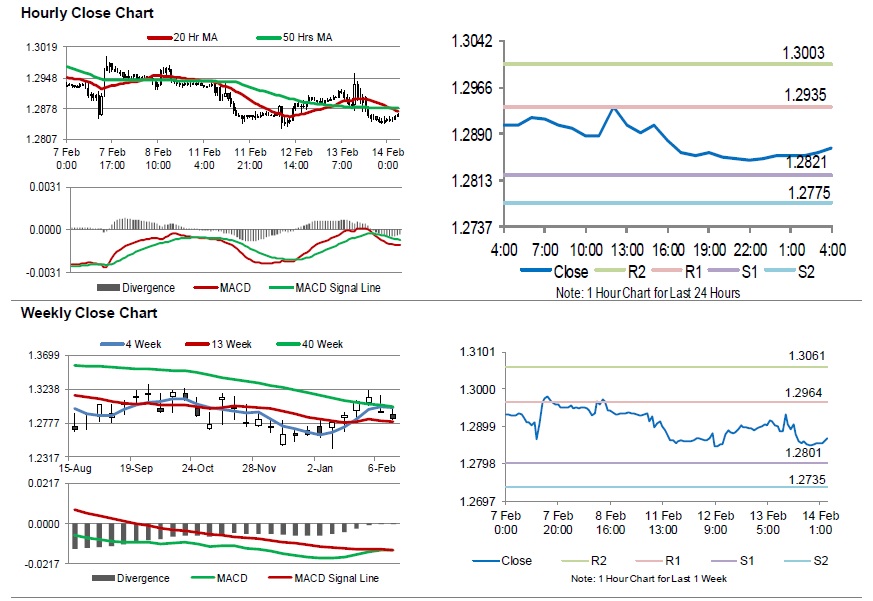For the 24 hours to 23:00 GMT, the GBP declined 0.34% against the USD and closed at 1.2850, after UK’s consumer price inflation (CPI) slowed to a two-year low level of 1.8% on a yearly basis in January, weighed down by falling energy prices and compared to a climb of 2.1% in the prior month. Market had anticipated the CPI to record a reading of 1.9%.
Other data showed that the nation’s retail price index rose 2.5% on an annual basis in January, compared to a gain of 2.7% in the preceding month. Additionally, the house price index climbed 2.5% on an annual basis in January, meeting market expectations. The index had recorded a revised rise of 2.7% in the previous month. Also, the non-seasonally adjusted output producer price index (PPI) advanced 2.1% on an annual basis in January, compared to a revised rise of 2.4% in the preceding month. Markets had expected the PPI to climb to 2.2%.
In the Asian session, at GMT0400, the pair is trading at 1.2866, with the GBP trading 0.12% higher against the USD from yesterday’s close.
Overnight data revealed that UK’s RICS house price balance declined to -22.0% in January, higher than market consensus for a drop to -20.0%. In the previous month, house price balance had registered a reading of -19.0%.
The pair is expected to find support at 1.2821, and a fall through could take it to the next support level of 1.2775. The pair is expected to find its first resistance at 1.2935, and a rise through could take it to the next resistance level of 1.3003.
Amid lack of macroeconomic releases in UK, traders would focus on global macroeconomic releases for further directions.
The currency pair is trading below its 20 Hr and 50 Hr moving averages.

